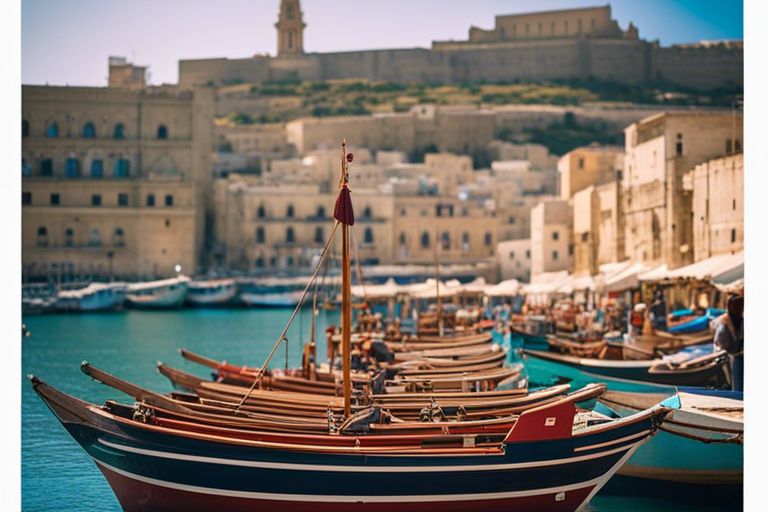Malta’s Role in Mediterranean Trade

Over the centuries, Malta has played a crucial role in Mediterranean trade due to its strategic location at the crossroads of Europe, Africa, and the Middle East. This small island nation has a rich history of commerce and maritime activity that has shaped its economy and culture.
Malta’s strategic location has made it a key hub for trade routes linking Europe to the rest of the Mediterranean region and beyond. Its natural harbors have long attracted traders and merchant ships, making it an important stopping point for goods being transported between continents.
The Maltese economy has traditionally been driven by trade, with imports and exports playing a significant role in the country’s prosperity. The Malta Freeport is one of the largest and busiest ports in the Mediterranean, handling a wide range of goods including containers, bulk cargo, and passenger ferries.
In recent years, Malta has also emerged as a key player in the logistics and shipping industry due to its modern infrastructure, efficient customs procedures, and skilled workforce. The country has invested heavily in port facilities, warehousing, and transport networks to support its growing role as a regional trade hub.
Malta’s strategic location has also made it a popular destination for international conferences and trade fairs, attracting business leaders, investors, and policymakers from around the world. The country’s well-developed hospitality sector and conference facilities have further solidified its reputation as a center for business and commerce.
In addition to its role in facilitating trade and commerce, Malta has also been a key player in the maritime industry due to its long history of seafaring and shipbuilding. The Maltese flag is one of the most reputable flags of convenience in the world, offering shipowners favorable tax benefits and regulatory conditions.
Overall, Malta’s role in Mediterranean trade is set to continue growing in importance as the country leverages its strategic location, modern infrastructure, and business-friendly environment to attract new businesses and investments. With its long history of commerce and maritime activity, Malta is well-positioned to remain a key player in the region’s economy for years to come.
FAQs:
What has historically driven Malta’s economy?
Trade has been the traditional driver of Malta’s economy, with imports, exports, and maritime activities playing pivotal roles.
Why is Malta considered a strategic location for trade?
Malta’s geographical position at the crossroads of Europe, Africa, and the Middle East makes it a crucial hub for trade routes connecting these regions.
What makes Malta’s ports significant in the Mediterranean?
Malta’s ports, including the Malta Freeport, are among the largest and busiest in the Mediterranean, handling diverse cargo types and facilitating international trade.
How has Malta invested in its logistics and shipping industry?
Malta has invested in modern infrastructure, efficient customs procedures, and skilled labor to bolster its role as a regional logistics and shipping hub.
What advantages does Malta offer to the maritime industry?
Malta’s flag is highly reputable globally, offering favorable tax benefits and regulatory conditions to shipowners under its flag of convenience.
Recommended Posts

Corporate Finance – Navigating Malta’s Business Tax Laws
June 28, 2024

Malta for Digital Nomads
June 28, 2024

iGaming: Europe’s Top Betting Destinations
June 28, 2024



